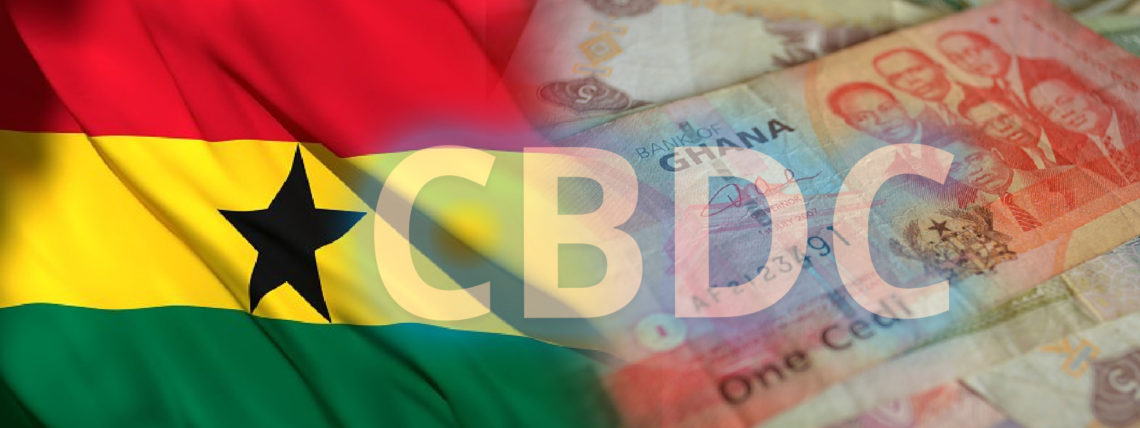The Bank of Ghana (BoG) has announced the will to introduce eCedi. In the design paper, the central bank is attempting to regain banks’ waning influence in financial transaction intermediation, which is now dominated by mobile money.
The BoG appears to see eCedi as a strategy to “contain the growth of mobile money” and reclaim full control of all financial activities in Ghana.
Despite the fact that eCedi would be issued by banks, the document indicated that it will make heavy use of existing payment infrastructure and rely on payment service providers and specialist deposit-taking institutions.
According to concerned industry stakeholders, there is sufficient evidence that the BoG is on a mission to use the eCedi to strengthen banks over mobile money, notably in the field of financial transaction intermediation. It is also aimed at improving financial inclusion. One of the features is to ensure the usage is free of charge.
Stakeholders believed that such a sensitive implementation will be expected to be carefully implemented, with significant participation from all stakeholders and stringent milestones and timetables.
Bank of Ghana declared its intention to explore a CBDC within the framework of the financial sector digitalisation program. It is in pursuit of this goal that Bank of Ghana announced the concept of the eCedi — a digital version of the Cedi banknotes and coins
This statement was made by Dr. Ernest Addison, the governor of the Bank of Ghana. However, the lack of implementation details has made various stakeholders be concerned about its implementation. The financial sector players are waiting to see what happens.
However, there remains strong feeling that BoG’s leadership on financial intermediation is actually advantageous for everyone because the main benefits include cheaper fees and a far better settlement system for all licensed players.
Meanwhile, the provided document explains how eCedi will help consumers, banks, fintech, merchants, the government, and the BoG.
The following are the whole specifics of the benefits:
Consumers

Users would profit greatly from a digital currency issued by the central bank, acknowledged as legal cash in the appropriate jurisdiction, and simple to use. The following features of the eCedi, according to BoG, will encourage customer adoption:
-
- A payment system that is interoperable and may be used by anyone, wherever in the country;
- Last-mile access to digital payment services (inclusiveness);
Simplifying access to and use of a digital form of money would spur competition, making it easier for service providers to develop more consumer-centric innovative products and services. - Efficiencies gained by the entire banking sector using a digital form of cash are expected to result in decreased service delivery costs.
Bank
Although the CBDC may result in a shift from deposit money to digital currency, the eCedi will be used to supplement, preserve, and reinforce commercial banks’ current role as financial intermediaries and important service providers to consumers. Commercial banks are currently under threat from the rise of huge global payment service providers such as Paypal, which could result in a loss of direct client interaction. According to the PwC Ghana Banking Survey1 from 2021, 95% of respondents believe the eCedi will have a favourable influence on the banking system.
Because of the vital role of banks, the BoG recommended architecture model for the eCedi with the goal of retaining the existing financial service landscape. In the eCedi ecosystem, banks are anticipated to serve the following functions:
-
- CBDC distribution from the central bank to the general public
- Wallets, applications, and other creative technological services for consumers to use the eCedi;
- Products and services for merchants to accept the eCedi.
- Develop and launch innovative services, such as programmable money and machine-to-machine payments, using the eCedi.
FinTech
In Ghana’s financial sector, mobile money operators and non-bank financial organisations such as microfinance institutions, rural and community banks, savings and loan companies, finance houses, finance and leasing firms, remittance companies, and credit unions play critical roles. The total number of people who have used their services has increased.
Among the traditionally excluded group, they have made the greatest contribution to financial inclusion.
The eCedi ecosystem has the potential to increase financial inclusion by alleviating existing problems, such as liquidity issues associated with deferred net settlement of mobile money interoperability transactions.
It is also projected to provide FinTechs with new prospects, such as:
-
- Supply consumers with eCedi wallets, applications, and other services;
- build on existing infrastructure without relying on fee-paying customers infrastructure of large-scale private companies;
- create goods and services that enable merchants to accept and use the eCedi;
- offer cutting-edge services such as programmable money and machine-to-machine communication-based payments in order to accelerate the digitalisation of financial services and trade.
Merchants
Merchants are currently charged a percentage of the transaction value by payment market intermediaries. Merchants, too, pay for cash handling services. These two fees, which have been a stumbling block to merchant acceptance of digital payments, can be decreased using the eCedi for the following reasons:
- The inclusion of eCedi as a retail payment mechanism provides competition to the Ghanaian market. Merchant fees are reduced as a result of the payment ecosystem;
- The streamlining of the payment chain has the potential to lower payment costs.
Government
The eCedi’s adoption would sufficiently help the “Digital Ghana Agenda” by introducing opportunities for innovative services:
- Automated payments to the government from customers (customs, fees, and so on);
- Social welfare payments that can be programmed;
- Taxation that is open and transparent.
Bank of Ghana
Regulators throughout the world are facing new problems as the financial services industry undergoes rapid technological development. Ghana is dealing with comparable issues and plans to use the eCedi to:
- Encourage financial participation;
- Encourage payment system competition;
- Improve the transmission mechanism for monetary policy;
- Retain monetary independence;
- Increasing transparency;
- Increase financial security;
- Reduce the cost of currency printing
